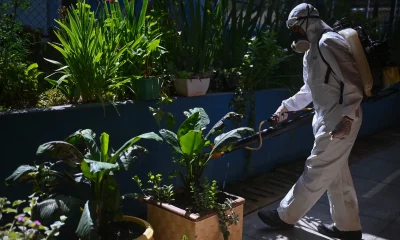International
Feminicidal violence persists in Latin America: More awareness, more cries, but few answers
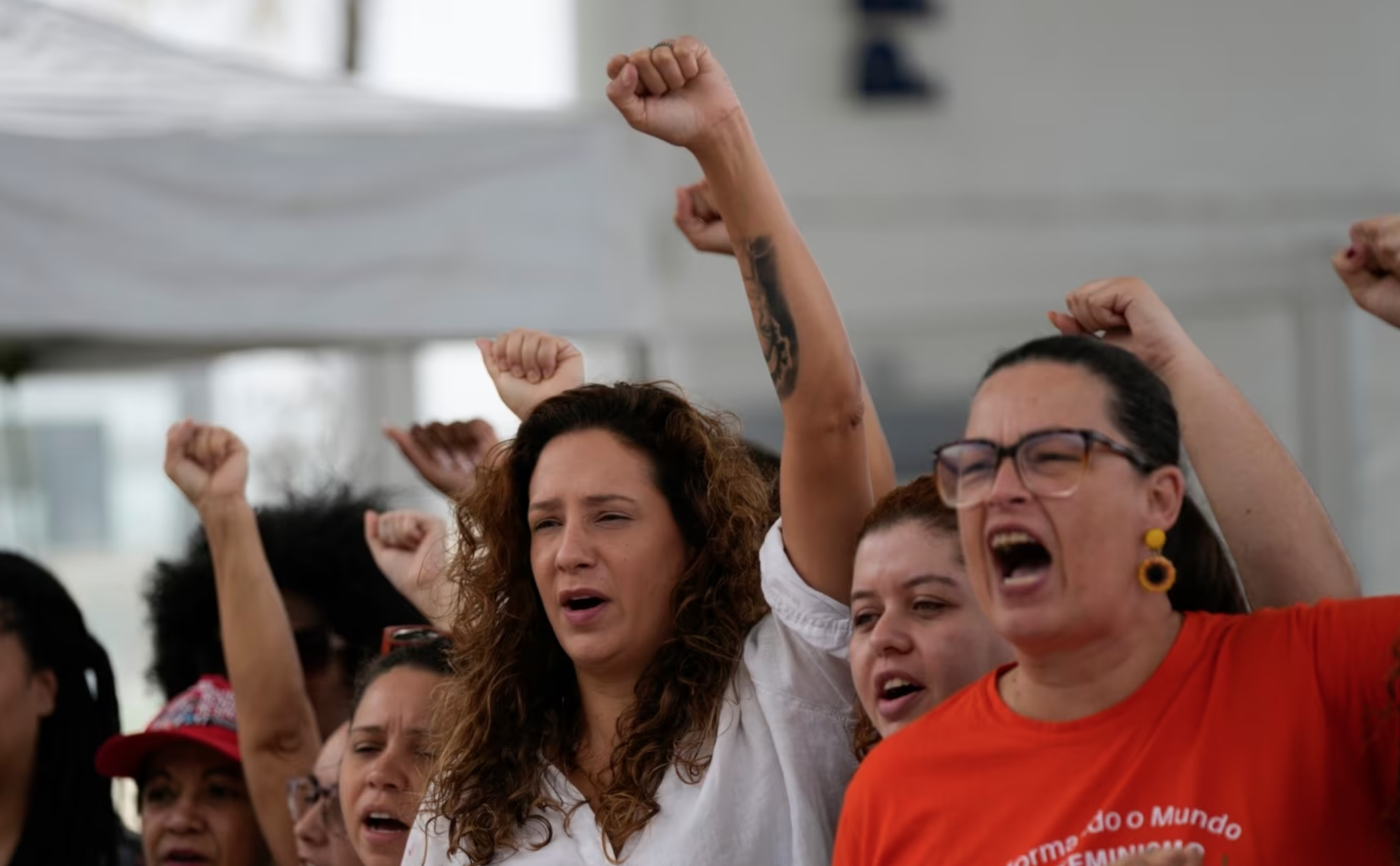
November 29 |
Despite advances in social awareness, legislation and statistics, feminicidal violence continues to plague the Latin American region, according to the latest report of the Economic Commission for Latin America and the Caribbean (ECLAC). In 26 countries and territories, a woman is murdered for gender-related reasons every two hours, revealing a stark reality that seems to refuse to let up.
Figures provided by the States indicate that in 2022 there were 4,050 victims of femicides in Latin America. However, feminist collectives argue that the magnitude of this tragedy exceeds what the official data show, underscoring the need to address the problem in a more comprehensive and effective manner.
The ECLAC report stresses that these femicides are “the extreme expression of inequality, discrimination and multiple forms of violence against women and girls”. Faced with this bleak picture, voices of protest were raised in various demonstrations that took place on the occasion of the International Day for the Elimination of Violence against Women, last Saturday.
From the beaches of Rio de Janeiro to Mexico City, women raised their voices demanding a stop to violence. In the Mexican capital, the Zócalo became a symbolic “cemetery”, with pink cardboards representing tombstones, remembering the victims of femicide and crying out for justice in a silent but forceful manner.
Another significant event took place at the central campus of the National Autonomous University of Mexico, where violet silhouettes of women were painted with messages and photographs in memory of the absent women, in anticipation of the marches planned for that day.
ECLAC warns about the prevalence of gender-based violence in the region, noting that around two thirds of women are victims of gender-based violence. Also, one in three women has experienced physical and/or sexual aggression by a partner or ex-partner, raising the risk of lethal violence, according to the World Health Organization.
The report highlights that the threat affects 88 million women over the age of 15 in Latin America and the Caribbean, underscoring the normalization and invisibility of violence against women over the age of 65.
Alarmingly, 4% of the victims are girls under the age of 15, with documented cases of child marriages and unions in 1 in 5 girls. More than 400 minors lost their mothers or caregivers due to femicides in 2022.
José Manuel Salazar-Xirinachs, Executive Secretary of ECLAC, emphasized the need for comprehensive and forceful state responses to prevent feminicidal violence, while stressing the urgency of profound transformations to guarantee violence-free lives for women and girls in the region. The report also points out the responsibility of States in private acts if they do not adopt measures to prevent and punish murders and assaults against women, as established by the Committee on the Elimination of Discrimination against Women in 2010. However, the contrast is evident: only three out of 19 countries report data on reports of violence, and in seven countries there are regulations to care for and compensate the children of women victims of femicide. The gap between reality and state response persists, unleashing more cries for justice in a region struggling to put an end to gender-based violence.
International
Gates Foundation to close by 2045 as Bill Gates pledges to donate $200 Billion
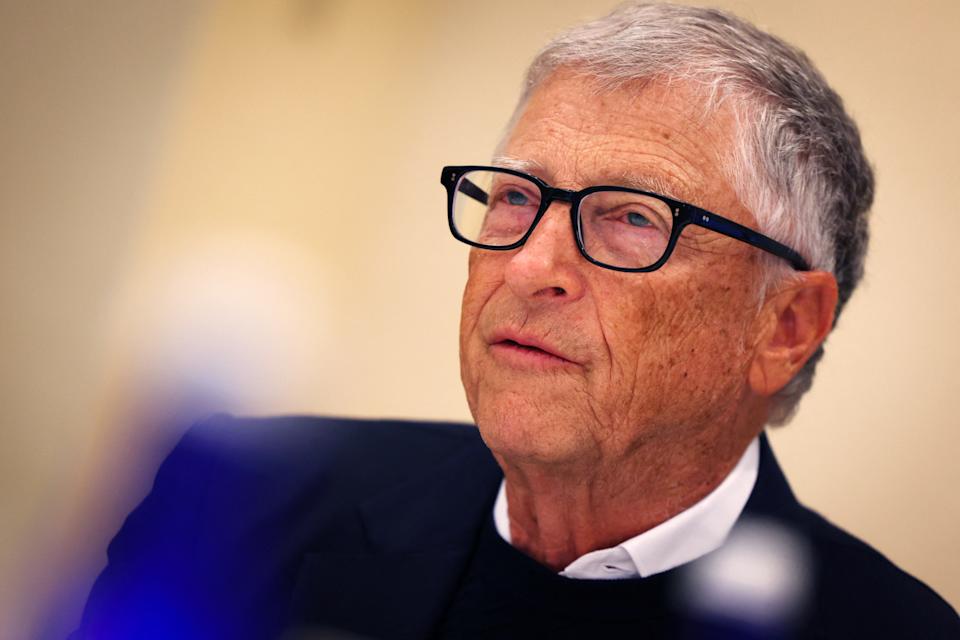
When Bill and Melinda French Gates established the Gates Foundation in 2000, they envisioned an organization that would continue its work for decades after their deaths. But now, Microsoft co-founder Bill Gates says he doesn’t want to wait that long to give away most of his fortune.
On Thursday, Gates announced that he plans to donate “virtually all” of his estimated $200 billion fortune over the next 20 years and will dissolve the foundation on December 31, 2045.
The announcement comes amid deep cuts by the Trump administration to funding for health, foreign aid, and public assistance programs — the very causes the Gates Foundation supports. The shift raises concerns about setbacks in global health research and critical development initiatives.
Gates says he wants to accelerate the foundation’s work in global health and equity, and hopes the move will inspire other billionaires to follow suit. In a blog post published Thursday morning, he emphasized that the foundation’s final phase should serve as a model for large-scale philanthropic impact.
This new pledge builds on Gates’s long-standing commitment to philanthropy. Alongside French Gates and Warren Buffett, he co-founded the Giving Pledge in 2010, which encourages billionaires to donate the majority of their wealth either during their lifetimes or in their wills. The campaign now has more than 240 signatories worldwide.
International
Bill Gates accuses Elon Musk of endangering the world’s poorest children

Bill Gates, co-founder of Microsoft turned global health philanthropist, sharply criticized Elon Musk in a recent interview with The New York Times, saying the tech billionaire is “the richest man in the world and is involved in the deaths of the world’s poorest children.”
At 69, Gates announced that the Bill & Melinda Gates Foundation will cease operations by 2045, and he urged the next generation of billionaires to step up. However, he expressed concern that today’s wealthy individuals are less committed to humanitarian work than they were two decades ago.
He cited Elon Musk as a prime example: “He’s the one who cut the USAID budget. He shredded it — all because he didn’t attend some party that weekend.”
Gates argued that Musk “could have been a great philanthropist,” but instead, “the richest man in the world is now contributing to the deaths of the world’s poorest children.” He pointed to how cuts to USAID have disrupted essential programs fighting HIV, malaria, and polio.
Gates called on the global elite to do more: “It’s not that we’re running out of rich people. There will be more, and they’ll reflect on what AI has done — or hasn’t — and what governments have done — or haven’t.”
Looking ahead, he urged future billionaires to commit to greater philanthropy, especially as his own foundation phases out: “The rich of today should do more. The rich twenty years from now should do more.”
Despite his criticisms, Gates maintained his trademark optimism. He dismissed fears that repeated U.S. administrations will continue cutting humanitarian budgets: “I don’t think there will be administration after administration slashing these things. If we look 20 years ahead, I believe we’ll continue reducing child mortality.”
Gates also expressed faith in artificial intelligence, suggesting it can provide medical expertise in remote regions on par with doctors with decades of experience — potentially even better than what’s available in wealthy countries.
International
VP JD Vance to World Cup visitors: “Enjoy the game, then go home”
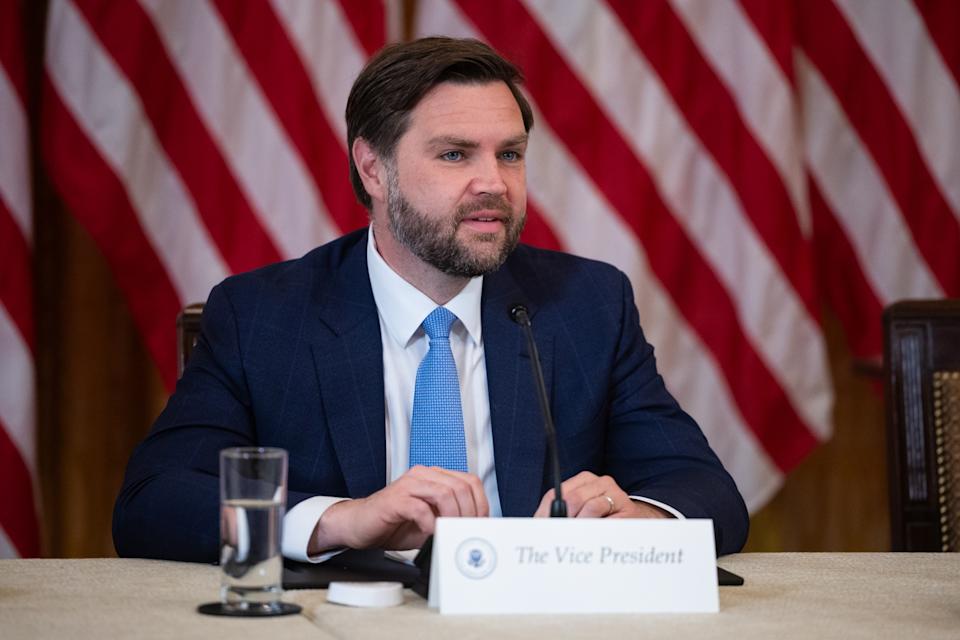
U.S. Vice President JD Vance issued a light-hearted but firm warning to international visitors planning to attend the 2026 FIFA World Cup, which will be co-hosted by the United States, Canada, and Mexico.
“We know we’ll have visitors, probably from close to a hundred countries. We want them to come. We want them to celebrate. We want them to enjoy the games,” said Vance during a press conference on Tuesday focused on the organization of upcoming major sporting events in the U.S.
“But when it’s over, they’ll have to go home,” he added.
Vance, speaking in a joking tone, also mentioned Homeland Security Secretary Kristi Noem, saying, “Otherwise, they’ll have to speak with Secretary Noem.”
The comment came during the first joint working session aimed at preparing for the 2026 World Cup, which will feature 48 national teams and take place across multiple cities in North America.
-

 International4 days ago
International4 days agoHouthis threaten israeli airports, urge airlines to cancel flights
-

 International4 days ago
International4 days agoAmerican Airlines sued after woman alleges sexual assault on flight
-
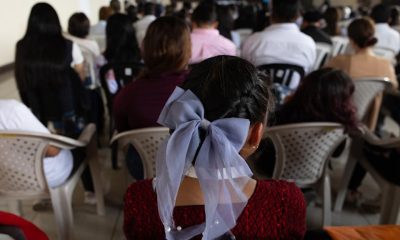
 Central America1 day ago
Central America1 day agoThousands of Guatemalan girls forced into motherhood due to sexual violence
-

 International3 days ago
International3 days agoSinaloa Cartel faction leader ‘Chuy’ Guzmán Castro detained in Mexico amid rising violence
-

 Central America3 days ago
Central America3 days agoCosta Rica congressional leader warns of authoritarian drift under president Chaves
-

 International3 days ago
International3 days agoProsecutor José Domingo Pérez reinstated in Fujimori corruption case
-

 International3 days ago
International3 days agoSpain approves plan to reduce workweek to 37.5 hours
-

 International3 days ago
International3 days ago“Give me a break”: Trump defends AI image of himself as the Pope
-

 Sin categoría3 days ago
Sin categoría3 days agoPope Francis donated Popemobile transformed into mobile clinic for Gaza’s children
-

 International3 days ago
International3 days agoSheinbaum rejects U.S. military presence in Mexico’s war on drugs
-

 International3 days ago
International3 days agoSins of the Vatican: Scandals, abuse, and a cardinal’s fall from grace
-

 Central America1 day ago
Central America1 day agoExperts urge action to protect democracy ahead of Honduras elections
-

 International1 day ago
International1 day agoLong wait at the Vatican: experts defend lengthy papal election process
-

 International1 day ago
International1 day agoXiomara Castro’s government vows to protect citizens amid threat reports
-

 Internacionales4 hours ago
Internacionales4 hours ago“A great honor for our country”: Trump congratulates Pope Leo XIV
-

 International4 hours ago
International4 hours agoBill Gates accuses Elon Musk of endangering the world’s poorest children
-

 International4 hours ago
International4 hours agoGates Foundation to close by 2045 as Bill Gates pledges to donate $200 Billion
-

 International4 hours ago
International4 hours agoVP JD Vance to World Cup visitors: “Enjoy the game, then go home”
-

 International4 hours ago
International4 hours agoStrong winds cause stage collapse in Mexico City; seven hurt
















